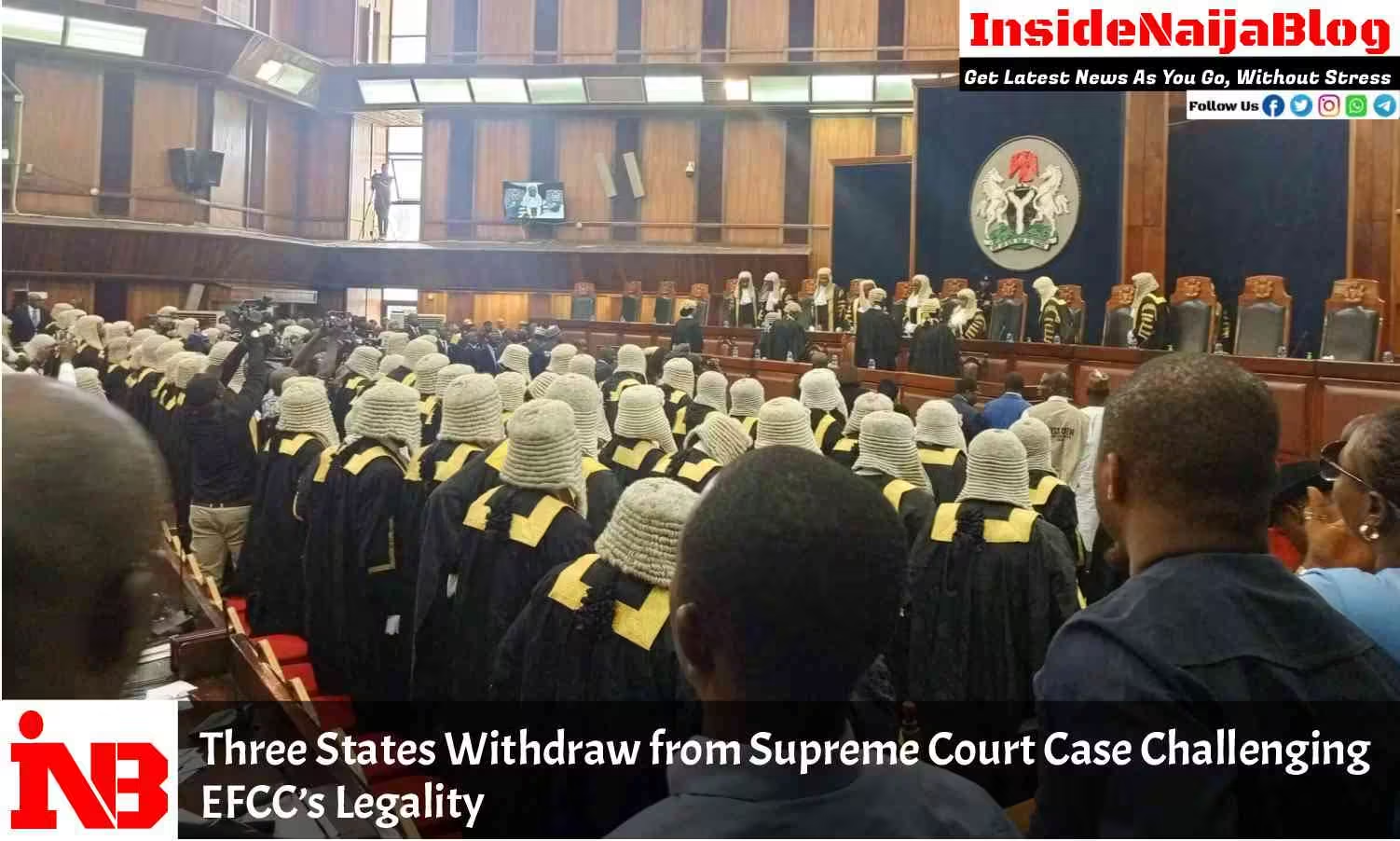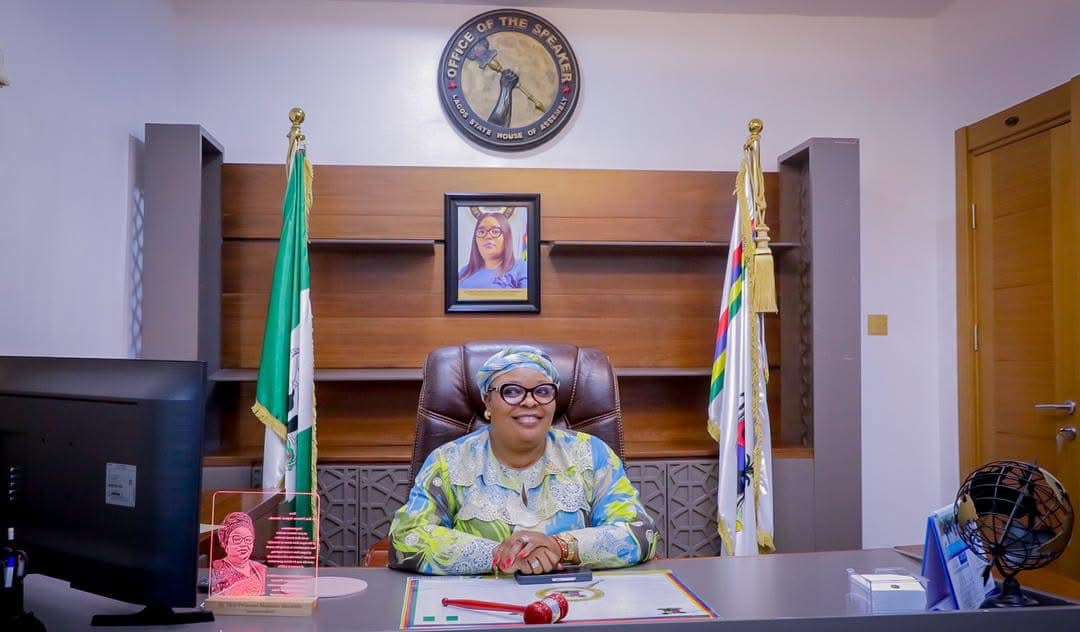In a significant legal development, Anambra, Adamawa, and Ebonyi states have withdrawn from a lawsuit before the Supreme Court that challenges the legitimacy of the Economic and Financial Crimes Commission (EFCC). The legal action, originally filed by Kogi State, sought to have the operations of the EFCC declared illegal. However, the three states announced their decisions to pull out of the case on Tuesday, just as the hearing was set to begin.
Anambra’s Attorney General, Prof. Sylvia Ifemeje, informed the court that the state was no longer interested in participating, citing a withdrawal notice filed on October 20. Similarly, Adamawa’s Attorney General, Mr. J. I. Jingi, revealed that the state had filed its withdrawal notice on October 14. Ebonyi, represented by counsel Mr. Ikenna Nwidagu, also applied to exit the lawsuit.
Their withdrawals were unopposed by the Attorney General of the Federation (AGF) and Minister of Justice, Prince Lateef Fagbemi, SAN, who is the sole defendant in the matter. Following their requests, the Supreme Court panel, led by Justice Uwani Abba-Aji, formally removed Anambra, Adamawa, and Ebonyi from the case.
At the same hearing, Osun State sought to consolidate its own grievances against the EFCC with those of Kogi State. Osun’s Attorney General, Mr. Oluwole Bada, argued that the state was pursuing the same reliefs as Kogi. Additionally, Sokoto State, listed as a co-plaintiff, did not send any legal representation, while other states, including Kogi, Kebbi, Katsina, Jigawa, Oyo, and Benue, were present.
The case, marked SC/CV/178/2023, initially filed by Kogi, has grown to include 15 other states that applied to join as co-plaintiffs. The plaintiffs are challenging the legality of the EFCC’s establishment, arguing that it was not properly created under Nigeria’s Constitution. Specifically, they claim that Section 12 of the 1999 Constitution, as amended, was not followed when the EFCC was set up, meaning it could not legally operate in states without approval from their Houses of Assembly.
The EFCC, established by an Act of the National Assembly in December 2002 during President Olusegun Obasanjo’s administration, began operations in April 2003 following the appointment of its first Chairman, Mallam Nuhu Ribadu. However, the plaintiffs argue that since the EFCC was formed based on an international anti-corruption convention, it required the approval of the states’ legislative bodies, a process they claim was bypassed.
Kogi State, the original plaintiff, raised several key questions for the Supreme Court to resolve, seeking declarations that the EFCC and other federal agencies, including the Nigerian Financial Intelligence Unit (NFIU), lack the power to investigate or manage funds belonging to the state or its local governments. The plaintiffs argued that the EFCC was not validly constituted and that its operations should be declared null and void.
In response, the AGF, Prince Fagbemi, filed a preliminary objection and counter-affidavit, asserting that the EFCC was lawfully established under Section 15(5) of the 1999 Constitution. He dismissed claims that the EFCC’s formation was flawed, urging the court to strike down the lawsuit. Fagbemi warned that ruling in favor of the plaintiffs could hinder Nigeria’s anti-corruption efforts and jeopardize previous convictions secured by the EFCC.
After hearing both sides, the Supreme Court panel reserved judgment, with a date to be communicated to the parties involved.
This case represents a major challenge to the EFCC’s authority and could have far-reaching implications for anti-corruption efforts in Nigeria, depending on the court’s final ruling.



